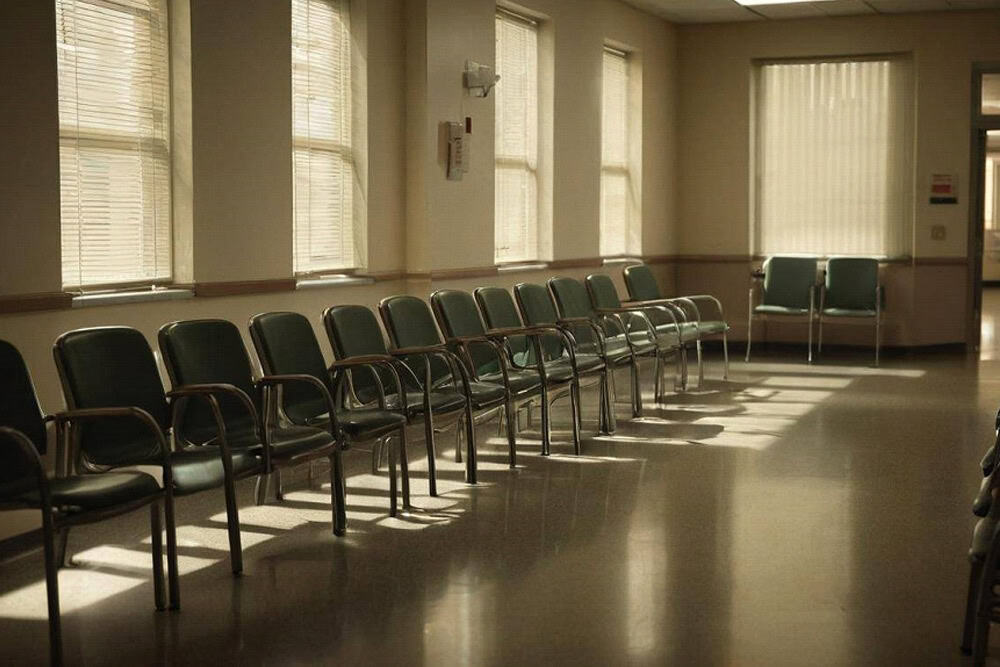The Truth About Cancer Misdiagnosis in Ireland: Common Types & Causes
Cancer misdiagnosis is a significant issue in Ireland with breast, colorectal, and lung cancers being common mistakes. Misinterpretation of mammograms or biopsies for breast cancer, wrong attribution of symptoms for colorectal cancer, and overlooked early signs or faulty imaging results for lung cancer often lead to these errors. Interestingly, while it seems that technological advancements should decrease these incidents, they sometimes contribute to the problem when medical professionals overly rely on them and overlook traditional patient examination procedures. Now, let's delve deeper into this matter.
Cancer misdiagnosis in Ireland can occur with various types of cancer, including breast cancer, colorectal/bowel cancer, and lung cancer. Causes of misdiagnosis often involve delayed diagnosis, failure to diagnose, and incorrect diagnosis, which may lead to potential legal action due to negligence. If you have experienced a cancer misdiagnosis, it's essential to consult with an experienced solicitor to assess your case and explore potential legal avenues.
Common Types of Cancer Misdiagnosis in Ireland
Discussing cancer misdiagnosis delves into a sensitive and critical topic. In Ireland, the most commonly diagnosed types of cancer—breast cancer, colorectal (bowel) cancer, and lung cancer—are also the most susceptible to misdiagnosis. Let's explore each of these to understand the reasons behind misdiagnoses.
Breast Cancer Misdiagnosis: One of the most emotionally challenging experiences is being told you have breast cancer when you may not. This devastating situation can arise due to various factors, such as a misread mammogram or an incorrectly analysed biopsy. The aftermath of these errors can lead to unwarranted stress, invasive treatments, or even worse, a delay in receiving the appropriate treatment if the cancer is missed.
Colorectal (Bowel) Cancer Misdiagnosis: This type of cancer is frequently misdiagnosed because its symptoms can mimic other gastrointestinal issues. Patients may encounter digestive problems that are mistaken for less severe conditions, resulting in a delayed diagnosis of colorectal cancer. This delay can profoundly alter life and significantly impact treatment success.
Lung Cancer Misdiagnosis: Lung cancer is another type susceptible to misdiagnosis, as early symptoms may be overlooked or disregarded. Furthermore, imaging results can at times be misinterpreted, leading to an incorrect diagnosis or delayed detection of lung cancer.
It's deeply concerning that these common types of cancers are prone to misdiagnosis, especially considering how crucial timely intervention is in cancer treatment. Misdiagnoses not only affect patients' physical health but also take an immense toll on their mental and emotional well-being.
We've all heard stories of individuals initially told they didn't have cancer, only to later discover they did, by which time it had progressed further than it would have with early detection. These accounts underscore the seriousness of cancer misdiagnoses and the urgent need for accuracy in early detection.
Understanding these common types of cancer misdiagnosis provides insight into the challenges faced within the healthcare system when it comes to accurately identifying and treating cancer.
Unravelling the underlying causes behind these common types of cancer misdiagnoses sheds light on the complexities involved in accurate diagnosis within the healthcare system.
Causes of Cancer Misdiagnosis
When it comes to understanding the causes of cancer misdiagnosis, it's important to recognize that there are several factors at play. Let's explore each of these causes in detail:
Inadequate Screening
One major factor contributing to cancer misdiagnosis is the inadequate access to or low participation in cancer screening programmes. Without regular screening, there are missed opportunities for early detection and diagnosis of cancer. This delay in identification can lead to the progression of the disease, making it less likely for successful treatment outcomes.
Moreover, inadequate screening can result in a lack of data on the prevalence of certain types of cancer, leading to less emphasis on their early identification and diagnosis. As a result, individuals may not receive timely screenings or diagnostic assessments, increasing the risk of undetected or misdiagnosed cancers.
Misinterpretation of Symptoms
Another common cause of cancer misdiagnosis arises from the similarity between cancer symptoms and those of benign conditions. Healthcare providers may misinterpret these symptoms as indications of less severe illnesses, potentially delaying proper diagnosis and treatment initiation. This challenge underscores the importance of comprehensive symptom evaluation and medical history assessment to accurately differentiate between various health conditions.
For example, lung cancer symptoms such as persistent coughing or chest pain can be mistaken for symptoms of respiratory infections or asthma. Similarly, breast lumps associated with breast cancer may be initially attributed to benign breast conditions. These parallels can lead to delayed referrals for further testing and specialist consultations, ultimately impacting the accuracy and timeliness of cancer diagnoses.
Testing Errors
Errors in laboratory testing, imaging interpretation, and diagnostic procedures also contribute significantly to instances of cancer misdiagnosis.
The complexity of diagnosing cancer demands precise and reliable testing methods, and any inaccuracies can compromise the validity of diagnostic results.
Laboratory testing errors may include sample contamination, specimen mix-ups, or insufficient quality control measures, all of which can yield misleading or inconclusive results. Similarly, imaging misinterpretations can occur when subtle indicators of malignancy are overlooked or incorrectly assessed. Diagnostic inaccuracies pose a substantial risk to patient care, emphasising the critical need for stringent quality assurance protocols across all stages of diagnostic testing.
Understanding these causes enables healthcare stakeholders to implement targeted interventions aimed at improving diagnostic accuracy and enhancing patient outcomes.
As we delve further into the intricacies of diagnostic challenges in healthcare, the role of medical testing errors emerges as a pivotal focal point for mitigating misdiagnosis. Let's now turn our attention to examining this crucial aspect in greater detail.
The Role of Medical Testing Errors
Medical testing is a critical part of diagnosing cancer. From laboratory tests to imaging studies, doctors rely on these results to make vital decisions about treatment. However, errors in these tests can have serious consequences and lead to misdiagnosis. Let's explore the different ways in which medical testing errors can occur and their impact on cancer diagnosis.
Laboratory Errors
Mistakes in the laboratory can arise during sample analysis or identification of cancerous cells, leading to misdiagnosis. For instance, if a lab technician misinterprets the presence of cancer cells in a sample, it can result in an incorrect diagnosis. Moreover, issues with sample contamination or mix-ups can also lead to inaccurate results, impacting the patient's treatment plan and overall well-being. It's essential for laboratories to maintain strict protocols and quality control measures to minimise the risk of such errors.

Imaging Misinterpretation
Another critical aspect of cancer diagnosis is the interpretation of imaging studies such as X-rays, MRIs, and CT scans. Misreading these images can result in false negatives or positives, leading to diagnostic errors. A misinterpreted image may lead to undetected tumours or unnecessary invasive procedures, causing undue stress and potential harm to patients. Radiologists and imaging professionals play a pivotal role in accurately interpreting these images, emphasizing the need for ongoing training and quality assessment.
It's important for patients and caregivers to advocate for second opinions when it comes to challenging diagnoses based on imaging studies, as this can help reduce the risk of misinterpretation.
Diagnostic Procedure Inaccuracies
In addition to laboratory and imaging errors, inaccuracies related to sample collection, handling, or procedural missteps can contribute to misdiagnosis. If a biopsy is performed incorrectly or if there are complications during the sample collection process, it can lead to unreliable results and incorrect diagnoses. Proper training, adherence to established guidelines, and stringent protocols for diagnostic procedures are essential in minimizing these inaccuracies and ensuring accurate diagnosis.
Understanding the potential pitfalls associated with medical testing errors not only underscores the complexity of cancer diagnosis but also highlights the critical need for precision and attention to detail throughout the diagnostic process.
Delays in Cancer Diagnosis and Its Impact
When a cancer diagnosis is delayed, it can have far-reaching repercussions. The most obvious consequence is the delay in initiating appropriate treatment. This is critical because early intervention is closely tied to improved outcomes. When diagnosis is delayed, the window for effective treatment may narrow, allowing the disease to progress unchecked.
Moreover, a delayed cancer diagnosis inflicts an emotional toll on patients and their families. The uncertainty and anxiety surrounding an undiagnosed condition can be emotionally distressing. The prolonged period of not knowing adds layers of stress as patients grapple with fear and uncertainty about their health. This emotional strain extends to family members and loved ones who share in the patient's anguish.
A delayed diagnosis affects not only the timing of treatment initiation but also changes the entire trajectory of the disease. What might have initially been a more manageable stage of cancer could worsen over time, potentially impacting treatment options and patient prognosis.
Consider the financial aspect as well. Delayed diagnosis often results in a protracted period of inappropriate or unnecessary treatments that can place significant financial strain on patients and their families. In addition to prolonged treatments, there may be additional costs associated with managing the worsening condition as a result of delayed diagnosis.
When cancer goes undiagnosed or misdiagnosed for an extended period, patients' prognoses can significantly deteriorate. Essentially, what might have been a relatively favourable outlook with early detection can shift to a much bleaker picture due to the progression of the disease during the diagnostic delay.
These impacts reiterate the critical importance of timely and accurate cancer diagnosis. Delays not only affect treatment options and patient outcomes but also take a toll on emotional well-being and financial stability. It's essential for healthcare providers to implement robust diagnostic processes to minimize these repercussions and ensure timely intervention for patients.
The next crucial step in combating cancer misdiagnosis involves understanding the measures that can be taken to prevent such delays and ensure accurate diagnoses. Taking proactive steps in this regard can significantly impact patient outcomes and overall well-being.


Measures to Prevent Cancer Misdiagnosis
Enhanced Training and Education: Ongoing professional development and training for healthcare providers are critical in improving diagnostic accuracy and ensuring adherence to best practises. It's crucial for healthcare professionals to stay updated with the latest advancements in cancer diagnosis and treatment. By enhancing their knowledge and skills, they can improve their ability to identify and interpret signs and symptoms accurately.
Robust Quality Control: Implementing stringent quality control measures in laboratory testing and imaging interpretation is essential to minimise errors and reduce the risk of misdiagnosis. Consistent quality checks can help identify any potential issues early on, ensuring that accurate results are provided to patients. These measures also involve closely monitoring the entire diagnostic process to maintain high standards and accuracy.
Improved Access to Screening Programmes: Enhancing public awareness and ensuring wider access to cancer screening programmes can facilitate early detection and diagnosis, reducing the likelihood of misdiagnosis. By encouraging individuals to participate in regular screening programmes, the chances of identifying cancer at an early stage increase significantly. This not only leads to timely intervention but also helps in minimising the risk of misinterpretation or delayed diagnosis.
Each of these measures plays a critical role in preventing cancer misdiagnosis. Through continued investment in training and education, implementation of quality control protocols, and enhanced access to screening programmes, the healthcare system can work towards minimising the occurrence of misdiagnosed cases, ultimately improving patient outcomes and overall public health.
In the quest for improved patient care and diagnostic accuracy, it's crucial to understand the legal avenues available to individuals affected by cancer misdiagnosis. Let's now delve into legal recourse for victims of misdiagnosis.
Legal Recourse for Victims of Misdiagnosis
Cancer misdiagnosis can have devastating effects on individuals and their families. It's a challenging and distressing experience that can lead to emotional stress, financial strain, and in some cases, irreversible harm. In such situations, it's crucial for victims to understand that they have legal rights and potential avenues for seeking redress.
Engaging a specialised medical negligence solicitor is an essential step for those affected by cancer misdiagnosis. These legal professionals have the expertise and experience to navigate the complex legal process involved in medical negligence claims. They provide invaluable support, guidance, and representation throughout the entire legal journey. This ensures that the victim's rights are protected, and they receive the advocacy necessary to seek accountability for the misdiagnosis.
One of the key benefits of involving a medical negligence solicitor is their ability to conduct a thorough investigation into the circumstances surrounding the misdiagnosis. This investigation often involves gathering and analysing medical records, consulting with independent medical experts, and assessing the actions of healthcare providers involved in the diagnosis process. Such detailed analysis not only strengthens the case but also provides clarity and understanding to the victim about what happened.
Consider this scenario: A patient presents concerning symptoms that warrant further examination for potential cancer. However, due to oversight or negligence, these symptoms are overlooked or misinterpreted by a healthcare professional. As a result, there is a delay in diagnosis or an incorrect diagnosis, leading to delayed treatment and progression of the disease. In such cases, the involvement of a medical negligence solicitor becomes paramount in holding the responsible parties accountable for their actions.
Legal action following cancer misdiagnosis may help in obtaining financial redress for various forms of harm suffered by the victim. This could include compensation for medical expenses incurred as a result of the misdiagnosis, loss of income due to impaired ability to work during treatment or recovery periods, and the emotional distress experienced by the individual and their loved ones.
Some may question whether pursuing legal recourse is necessary given the complexity of such cases. However, it's important to recognize that seeking accountability through legal channels not only provides financial compensation but also contributes to raising awareness about the impact of cancer misdiagnosis. Furthermore, it holds healthcare providers accountable and encourages improvements in diagnostic procedures and patient care.
In conclusion, seeking legal recourse for cancer misdiagnosis is a significant step towards obtaining justice, redress, and closure for the victims and their families. The involvement of a qualified medical negligence solicitor is instrumental in navigating this challenging process and ensuring that the rights of those affected are upheld.
Get a Consultation Today! - Call us now at 01 5134687
Gary Matthews Solicitors
Medical negligence solicitors, Dublin
We help people every day of the week (weekends and bank holidays included) that have either been injured or harmed as a result of an accident or have suffered from negligence or malpractice.
Contact us at our Dublin office to get started with your claim today

